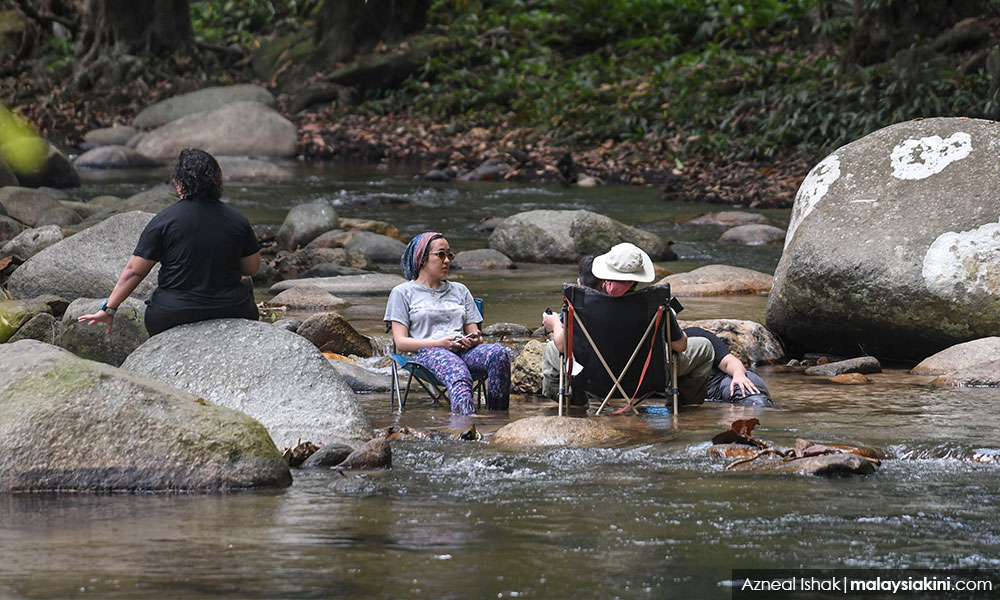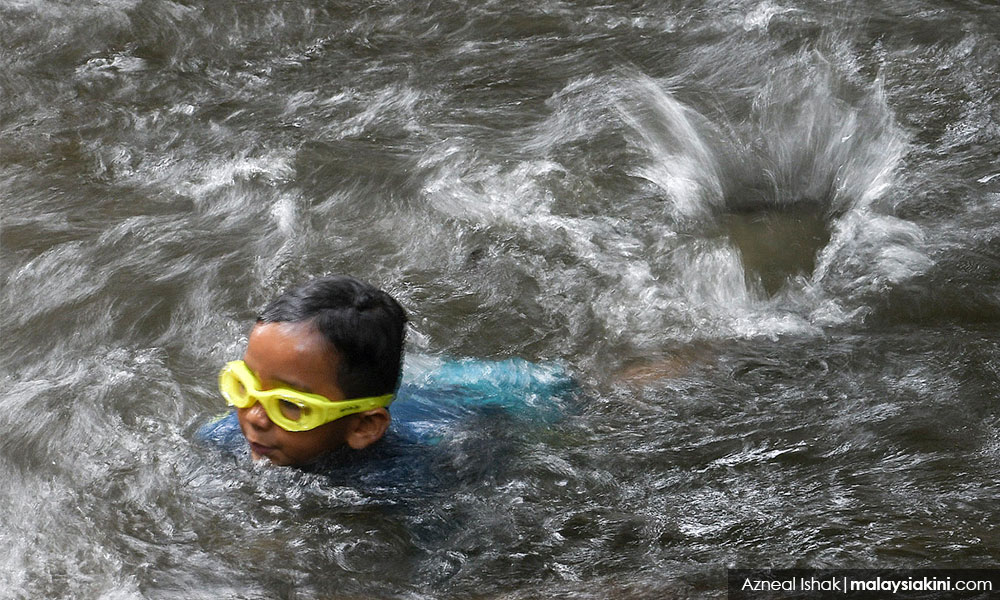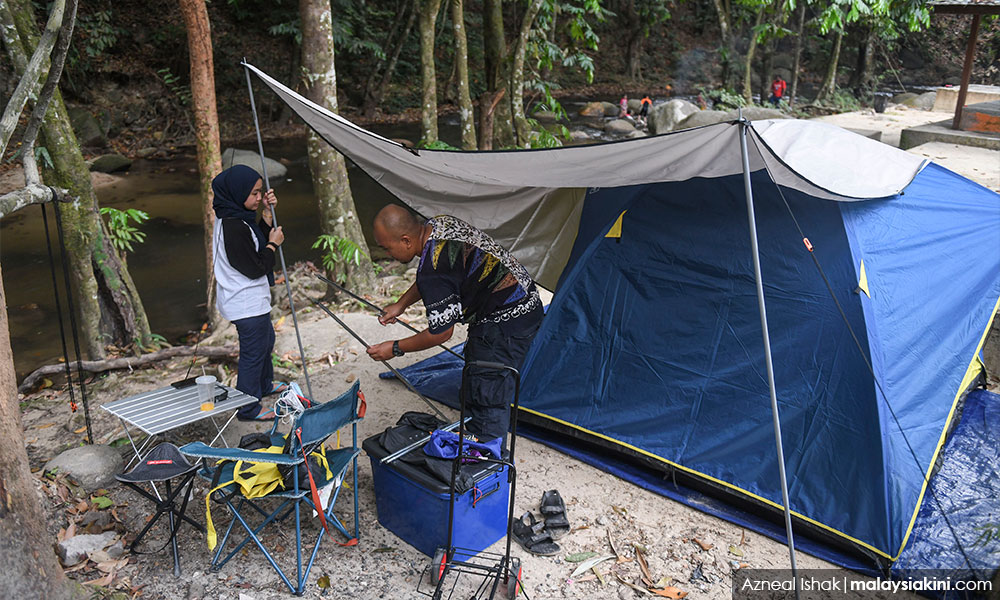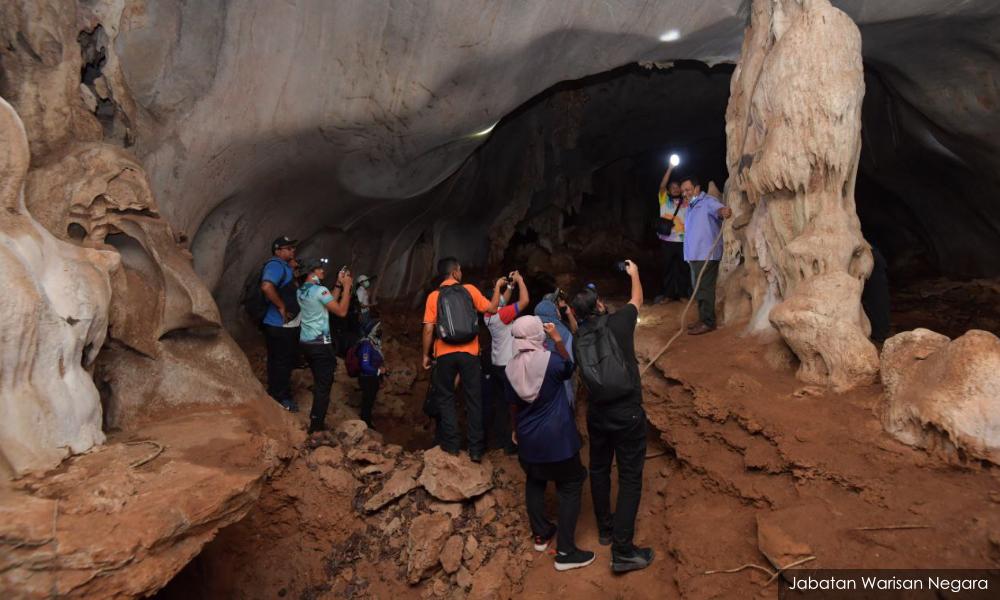The Sabah Move and the rumoured London Move are like addictive, never-ending political soap operas that suck up national attention. Let’s forget them for a few minutes and consider how we can improve the nation in 2023 under the new government.
After the Batang Kali campsite landslide tragedy, one area I want to delve into is how to improve our adventure industry. We are a country blessed with amazing forests, waterfalls, caves, beaches, and coral reefs.
If we get things right, we can be a top adventure tourism destination, on par with the Maldives and Costa Rica. Apart from the ringgit value of tourism, we the rakyat deserve to enjoy this country’s natural treasures as a matter of national pride.
Hiking
This has become a hugely popular hobby because it’s so affordable. Urban Malaysians trapped in the concrete jungle yearn for real jungles, which are located quite close to most of our towns.

However, rather than encouraging this, various state forestry departments have been erecting barriers, making permits and even guides compulsory. Selangor, supposedly the country’s most advanced state, even insists that permit payments be made in cash or via that ancient dinosaur called Wang Pos!
Is this to discourage people from entering our forests and reporting on any hanky-panky “development”, such as at Bukit Cherakah?
The official reason given for these permits is “safety”, as too many hikers have gotten lost, resulting in laborious rescues. But the permits are merely a list of names and IC numbers. They just add a layer of bureaucracy and do nothing to actually reduce the risk of hikers getting injured or going astray.
Whereas, when joining well-run hiking groups, we are asked to bring a list of compulsory items – whistle, headlamp, adequate water, basic first aid, and hiking shoes with proper grip. One should also install phone apps such as Maps.me which display jungle trails even without data.
My suggestion is for the authorities to insist that all hikers pass a one-time simple safety test before being allowed to enter deep jungles. They should also be required to bring a list of essential safety items (as mentioned above) and spot checks can enforce this if the relevant departments are willing to work a bit more.
To reduce rampant littering, rules should also be imposed that hikers must bring out whatever they bring in – as done at national parks such as Taman Negara and Gunung Ledang.
Guides are good but not always necessary. For instance, at Bako national park, near Kuching, visitors have been navigating the trails themselves for decades because there are good sign boards with maps at major junctions. Well done, Sarawak! The forestry or tourism departments in West Malaysia can easily employ veteran trekkers to set up such sign boards on all our jungle trails.
There are also complaints that forestry departments tend to favour guides of a certain race. Experienced hikers, say those who have passed certain safety tests, should be allowed to lead their own groups.
Scuba diving, snorkelling
After scuba diving for some 25 years, I’ve been repeatedly told that the biggest risks are not underwater but at the surface – due to poorly disciplined boat operators. I’ve seen how some of them handle their boats like cowboys and so it’s not surprising there have been several cases of boats hitting divers as they surface.

In April 2022, four foreigners were swept away by sea currents after surfacing from their dives off Pulau Tokong Sanggul, an island near Mersing, Johor. Two of them drifted for three days before they were rescued over 100km away. A 14-year-old Dutch boy was never found and presumed dead. The boat driver tested positive for syabu (crystal meth). Eventually, the boat company was punished with an RM5,000 fine.
Obviously, to inspire greater confidence in our marine tourism industry, professional standards need to be maintained not only among dive guides but also among boat operators, including understanding sea currents at different times of the month and year.
As for snorkelling, sad to say, I’ve seen too many hordes of tourists at our islands trampling on fragile corals that take years to grow. The authorities need to work with operators to ensure the long-term survival of the very thing that tourists come to see – vibrant schools of fish amidst healthy coral reefs.
Camping
Camping has become a booming business, especially after the pandemic. Since the tragedy at Batang Kali, campsite safety is now a huge concern, something I addressed in my earlier article.
There are some 8,000 campsites in Malaysia, according to outdoor expert Brandon Chee. How do we regulate them?

“The ministry people may not know everything as they are not on the ground. It’s better that camp operators form an association and work with the government to implement certain standards,” he suggests.
“We cannot immediately implement all kinds of procedures as this will kill small operators. So, let’s have a ratings system,” says Chee.
For example, a one-star campsite will have simple toilets and garbage management. Plus minimum safety standards, such as how to handle river flash floods and basic first aid.
“Campsites can slowly upgrade their facilities and safety training to get more star ratings. Consumers can choose campsites based on the ratings,” he explains.
Chee runs a campsite at The Nest@MAEPS, Universiti Pertanian Malaysia, Serdang, and follows the ISO 21101 adventure tourism safety standards plus American Camp Assessment guidelines because this is what his clients from international schools require.
“There’s no need to reinvent the wheel, we can follow successful examples overseas, and adapt them to local conditions,” he explains. “The Tourism Ministry can engage those with experience to help train campsite operators to improve standards.”
Caving
For my last segment, I want to talk about Malaysia’s magnificent limestone hills filled with amazing cave systems. The main challenge is to preserve our hills/caves for their long-term benefits, rather than destroying them for the very short-term goal of quarrying or making cement. That’s like burning antique wood furniture to cook food.
Limestone hills bless us with unique landscapes, which can be leveraged to create sublime property developments, as seen around Ipoh. They are also a future gold mine of adventure tourism.

About 90 percent of limestone actually lies underground, and that’s where we should mine for it to make cement. Preserve the 10 percent of hills above ground, where all the beauty is.
Conclusion
It’s time that we stop treating our adventure industry as merely a casual hobby. Rather, we need to manage it seriously and professionally.
If we do, we stand to reap rich rewards not only in tourism revenues but also in national pride for our natural treasures that we can all enjoy safely. - Mkini
ANDREW SIA is a veteran journalist who likes teh tarik khau kurang manis. You are welcome to give him ideas to brew at tehtarik@gmail.com.
The views expressed here are those of the author/contributor and do not necessarily represent the views of MMKtT.



No comments:
Post a Comment
Note: Only a member of this blog may post a comment.